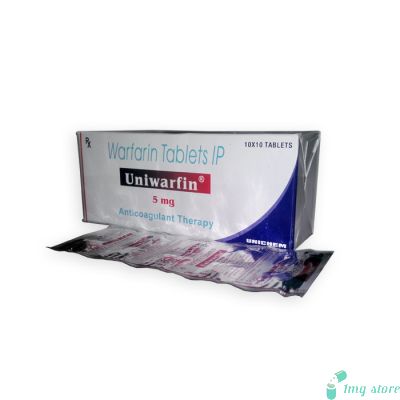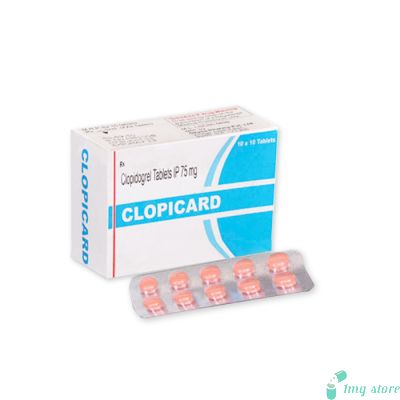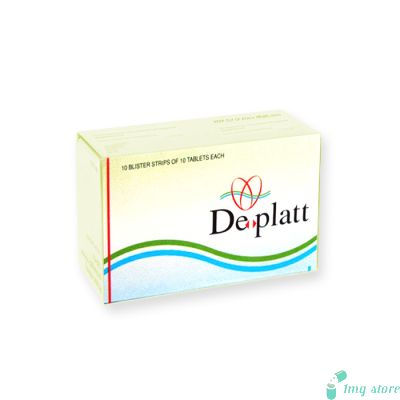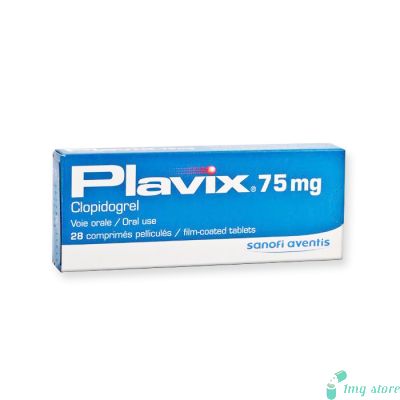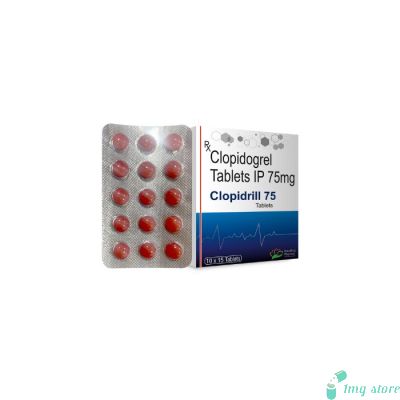Warf Tablet (Warfarin)
Warfarin Tablet is a medication primarily used to prevent blood clot formation and treat existing blood clots in various parts of the body, including the heart, brain, lungs, and other areas. It is also prescribed to reduce the risk of heart attacks or strokes that can occur due to blood clots. Coumadin is another trade name for Warfarin
Warfarin Tablet Information
Warfarin Tablet, commonly known by its brand name Warf, is an oral medication that belongs to the class of anticoagulants. It is primarily used for the prevention and treatment of blood clots, thereby reducing the risk of stroke, deep vein thrombosis (DVT), pulmonary embolism (PE), and other clot-related complications. Warfarin Tablet is a widely prescribed medication and has been in use for several decades. It works by inhibiting the synthesis of certain clotting factors in the liver, which are essential for the formation of blood clots. By interfering with this process, Warfarin helps to prevent the formation of new clots and also reduces the size of existing clots. The active ingredient in Warfarin Tablet is warfarin sodium, which acts as a vitamin K antagonist. Vitamin K is necessary for the activation of clotting factors, and by blocking its action, Warfarin helps to maintain the blood's ability to flow smoothly.
Warfarin Tablet is available in various strengths, and the appropriate dosage is determined by individual factors such as the patient's medical condition, response to treatment, and other medications they may be taking. It is important to follow the prescribed dosage and regular monitoring of blood clotting time, as determined by healthcare professionals. Although highly effective, Warfarin Tablet requires careful monitoring and management due to its narrow therapeutic window. Regular blood tests, such as the international normalized ratio (INR), are performed to assess the effectiveness and safety of treatment. The INR value helps healthcare providers adjust the dosage to maintain the desired anticoagulant effect while minimizing the risk of bleeding.
Patients taking Warfarin Tablets should closely follow their healthcare provider's instructions regarding dosage, dietary restrictions, and potential drug interactions. Certain foods high in vitamin K, such as leafy green vegetables, may affect the medication's effectiveness, and therefore, consistent intake is recommended. It is important to note that Warfarin Tablet is also marketed under the brand name Coumadin. Both Warfarin and Coumadin refer to the same medication, containing the active ingredient warfarin sodium. These names are often used interchangeably in medical literature and discussions.
In summary, Warfarin Tablet (Warf) is a widely used anticoagulant medication prescribed for the prevention and treatment of Blood Clots. It helps to reduce the risk of serious conditions such as stroke, DVT, and PE. Patients taking Warfarin should adhere to their healthcare provider's instructions and undergo regular monitoring to ensure its safe and effective use in managing their medical condition.
Warfarin Alternatives:
While Warfarin is a commonly prescribed anticoagulant, there are alternative medications available for individuals who cannot take or have contraindications to Warfarin. These alternatives include newer oral anticoagulants such as rivaroxaban, apixaban, dabigatran, and edoxaban. These medications offer similar anticoagulant effects and may have certain advantages such as fixed dosing and reduced need for regular monitoring.
Affordable Warfarin Online at 1mgstore.com:
If you're looking for an affordable option to purchase Warfarin online, 1mgstore.com offers competitive pricing for this medication. We provide a convenient platform where you can order Warfarin from the comfort of your home and have it delivered to your doorstep. It is important to ensure that you consult with a healthcare professional and have a valid prescription before making any online purchases of prescription medications.
Warfarin Online Purchase:
Online purchase of Warfarin can be a convenient option for individuals who have a valid prescription and are unable to visit a physical pharmacy. When considering an online purchase, it is crucial to choose a reputable and licensed online pharmacy to ensure the authenticity and quality of the medication. It is also important to follow the recommended dosage and guidelines provided by your healthcare provider to ensure the safe and effective use of Warfarin.
Benefits of Warfarin Tablet:
Warfarin offers several benefits for individuals who require anticoagulation therapy:
Blood Clot Prevention: Warfarin helps prevent the formation of blood clots by inhibiting the synthesis of clotting factors. This reduces the risk of serious conditions such as stroke, deep vein thrombosis (DVT), and pulmonary embolism (PE).
Treatment of Existing Blood Clots: Warfarin can also be used to treat existing blood clots, helping to reduce their size and prevent further complications.
Proven Effectiveness: Warfarin has been used for several decades and has a well-established track record in preventing and treating blood clots. Its efficacy has been demonstrated in numerous clinical trials.
Individualized Dosage: Warfarin dosages can be adjusted based on individual needs and response to treatment. Regular monitoring allows healthcare providers to tailor the dosage to achieve the desired anticoagulant effect while minimizing the risk of bleeding.
Wide Availability: Warfarin is widely available and affordable compared to some newer anticoagulant medications. This accessibility makes it an accessible treatment option for many individuals.
Insurances and Alerts for Warfarin Tablet (Warf):
Bleeding Risk: Warfarin (Coumadin) increases the risk of bleeding. Report any signs of unusual bleeding or bruising to your healthcare provider immediately.
Regular Monitoring: Regular blood tests, such as the INR, are necessary to monitor the effectiveness and safety of Warfarin therapy. Follow your healthcare provider's recommendations for testing frequency.
Dietary Considerations: Maintain a consistent intake of foods rich in vitamin K to ensure stable anticoagulant effects. Avoid making significant changes to your diet without consulting your healthcare provider.
Alcohol: Limit alcohol consumption while taking Warfarin, as it can increase the risk of bleeding and interact with the medication.
Medical Procedures: Inform all healthcare providers about your Warfarin therapy before undergoing any surgical or dental procedures.
Overdose: Do not take more than the prescribed dosage of Warfarin. Seek medical attention immediately if an overdose is suspected.
Some of the Major Applications of Warfarin Tablet (Warf):
Prevention of Blood Clots: Warfarin is commonly prescribed to prevent the formation of blood clots. It is particularly useful for individuals with conditions such as atrial fibrillation, artificial heart valves, deep vein thrombosis (DVT), or a history of blood clots.
Treatment of Blood Clots: Warfarin is also used in the treatment of existing blood clots, helping to reduce their size and prevent further complications.
Prevention of Stroke: Warfarin is often prescribed to reduce the risk of stroke in individuals with atrial fibrillation, a heart rhythm disorder that can lead to blood clots forming in the heart.
Prevention of Pulmonary Embolism: Warfarin (Coumadin) is used to prevent pulmonary embolism, a potentially life-threatening condition where a blood clot travels to the lungs.
Management of Deep Vein Thrombosis (DVT): Warfarin is a common medication used in the management and prevention of DVT, which occurs when a blood clot forms in the deep veins, usually in the legs.
Prevention of Clots during Certain Medical Procedures: Warfarin may be temporarily prescribed to prevent blood clots during surgeries or procedures that carry an increased risk of clot formation.
To Be Notice Symptoms of Warfarin Tablet (Warf):
Bleeding: The most significant side effect of Warfarin is an increased risk of bleeding, which can manifest as easy bruising, prolonged bleeding from cuts, nosebleeds, or gastrointestinal bleeding.
Hemorrhage: In rare cases, Warfarin (Coumadin) can lead to severe bleeding, including intracranial hemorrhage (bleeding in the brain) or gastrointestinal bleeding.
Skin Necrosis: A rare but serious side effect, skin necrosis can occur in certain individuals taking Warfarin, causing skin tissue death and the formation of painful, darkened areas.
Purple Toe Syndrome: Another rare side effect, purple toe syndrome causes a purple or bluish discoloration of the toes and can be accompanied by pain or coldness in the affected area.
Hair Loss: Some individuals may experience hair loss or thinning while taking Warfarin, although it is generally reversible once the medication is discontinued.
Allergic Reactions: In rare instances, Warfarin can trigger allergic reactions such as rash, itching, swelling, or difficulty breathing.
Skin Reactions: Warfarin may cause skin reactions such as hives or a widespread rash, indicating a potential allergic response.
Osteoporosis: Prolonged use of Warfarin may increase the risk of osteoporosis, a condition characterized by weakened and brittle bones.
Purple or Blue Skin Discoloration: In rare cases, Warfarin can cause skin discoloration, appearing purple or blue, typically on the extremities.
Help Section Regarding Warf Tablet (Warfarin)
Can I consume alcohol while taking Warfarin?
It is generally recommended to limit alcohol consumption while taking Warfarin, as alcohol can increase the risk of bleeding. It is best to consult your healthcare provider for specific guidance based on your individual situation.
Can I take over-the-counter pain relievers, like ibuprofen or aspirin, while on Warfarin?
It is important to consult your healthcare provider before taking any over-the-counter medications, including pain relievers, while on Warfarin. Some pain relievers can increase the risk of bleeding and may interact with Warfarin, so it is crucial to seek professional advice.
Is it safe to undergo dental procedures or surgeries while on Warfarin (Coumadin)?
Dental procedures or surgeries may require specific precautions if you are taking Warfarin (Coumadin). It is important to inform your dentist or surgeon about your medication use, as they may need to coordinate with your healthcare provider to adjust your Warfarin dosage or consider temporary cessation of the medication to minimize bleeding risks.
Can Warfarin be safely used during pregnancy?
Warfarin is generally not recommended during pregnancy due to potential risks to the developing fetus. Pregnant individuals with a need for anticoagulation therapy may be switched to alternative medications after careful consideration and consultation with a healthcare professional.
Are there any dietary restrictions while taking Warfarin?
Warfarin interacts with foods high in vitamin K, which can affect its anticoagulant effect. It is important to maintain a consistent intake of vitamin K-containing foods to avoid fluctuations in the medication's effectiveness. However, major dietary changes should be discussed with your healthcare provider to ensure the appropriate balance between vitamin K intake and Warfarin therapy.
Some Drug Communications with Warfarin Tablet (Warf):
Anticoagulants: Concurrent use of other anticoagulant medications, such as heparin, enoxaparin, or rivaroxaban, can increase the risk of bleeding. Close monitoring is required if these medications are used together.
Antiplatelet Drugs: Medications like aspirin, clopidogrel, and nonsteroidal anti-inflammatory drugs (NSAIDs) can increase the risk of bleeding when taken with Warfarin. Use caution and inform your healthcare provider if you are prescribed or taking these drugs.
Antibiotics: Some antibiotics, such as ciprofloxacin, trimethoprim-sulfamethoxazole, and erythromycin, can potentiate the effects of Warfarin (Coumadin), increasing the risk of bleeding. Regular monitoring of INR levels is necessary if these antibiotics are prescribed.
Antifungal Medications: Certain antifungal drugs, like fluconazole and voriconazole, can interact with Warfarin and increase the risk of bleeding. INR levels should be closely monitored when these medications are used together.
Medications affecting liver enzymes: Drugs that affect liver enzymes, such as amiodarone, cimetidine, and certain antiepileptic drugs (e.g., phenytoin), can interfere with Warfarin metabolism and alter its anticoagulant effect. Close monitoring of INR levels is crucial if these medications are used concomitantly.
Herbal and Dietary Supplements: Herbal supplements, such as ginkgo biloba, garlic, and St. John's wort, as well as high-dose vitamin E and omega-3 fatty acids, can interact with Warfarin and increase the risk of bleeding. Consult your healthcare provider before taking any supplements.
| Manufacturer | : | Cipla Ltd |
| Equivalent Brand | : | Coumadin |
| Generic Search | : | Warfarin |









